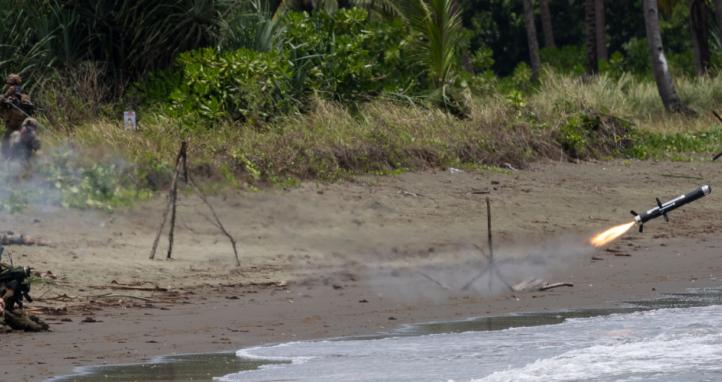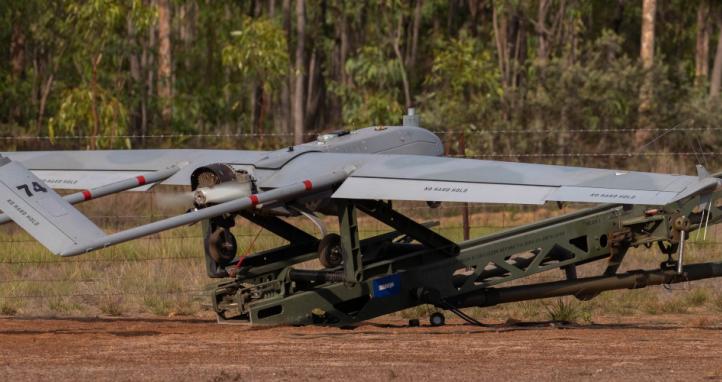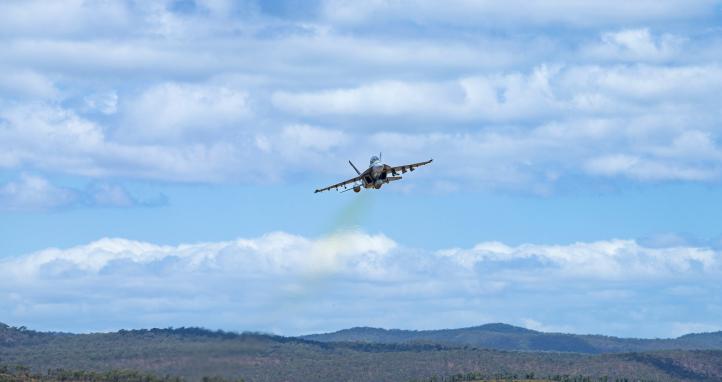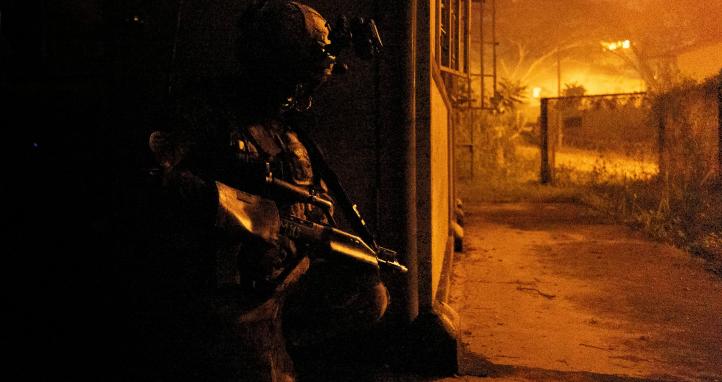Stoicism has guided many great leaders of our world, from roman emperors to contemporary military generals. Its lessons are applicable to all with the idea of being in control of ones emotions being a core tenet. The idea of temperance and control of emotions is applicable to soldiers who deal with extreme emotions of rage and fear in the face of the enemy and it is this control that can help soldiers make ethical and appropriate decisions under extraordinary stress. This essay will focus predominantly on soldiers at the tactical level and how this ancient philosophy can aid the soldiers of our modern militaries.
One of stoicism’s core tenets is the idea that 'some things are in our control, and others are not'[1], with our emotions being within our control. Cultivating this control can allow soldiers to act decisively and virtuously under immense pressure. The Stoics argue that 'we cannot choose our external circumstances, but we can always choose how we respond to them'[2] and to many young soldiers this idea of finding self-sufficiency regardless of the situation is appealing[3]. One of the most volatile emotions that blinds people is that of anger, and in the words of a prominent historic Stoic philosopher, Seneca: 'No plague has cost the human race more, you will see slaughter…devastation of cities, the ruin of whole nations'[4].
Anger has led to many horrific incidents within warfare ranging from the 1968 massacre of My Lai[5] to the 2005 Haditha massacre[6]. These slaughters originated from improvised explosive device (IED) attacks, which killed US soldiers and invoked a rage amongst the survivors, resulting in the deaths of over 500 and 20 innocent civilians respectively. These two examples are prolific and by no means the only ones, but they demonstrate the potential devastation of a soldier’s rage. The stoics propose this idea of 'apatheia' which Nancy Sherman describes as a 'freedom from passions in which there is no frenzy or rage, no annoyance or bitterness, no moral outrage' [7].
When paired with the stoic ideal of 'prohairesis' which we might understand as 'moral character, integrity, will or self'[8], we can see how an overwhelming amount of emotion and acting in the heat of rage or any emotion for that fact, goes against this stoic ideal. These ideals encourage individuals to control their emotions more adeptly, making them less likely to commit acts of anger, but rather remain stoic, calm, and act virtuously. However, this idea of apatheia can also be taken too far, whereby one can become fully detached and a soldier feels no emotion, which can result in actions of excessive violence while remaining legally permissible. Soldiers must cultivate their humanity and still feel emotion without being ruled by it. In no way is this essay arguing these previous mentioned events would have been avoided if stoic practices were implemented, but perhaps its ideas could be used to reduce the likelihood and frequency of these fits of rage. In some respects, the military understands this need for controlling emotions, specifically anger, and conducts training into the controlling of this emotion through bayonet training.
The Australian Army puts all its recruits through some form of bayonet training with the intent of conducting 'controlled, aggressive manoeuvres' and to cultivate 'controlled aggression'[9]. This idea of controlled aggression falls in line with the stoics ideal of apatheia, which is not a life without emotion, but rather one of controlled emotions where decisions do not influence action and they always act in pursuit of a virtuous life. Stoicism itself is regarded as a deontological form of philosophy [10] as the stoics deduced that 'the consequences of our actions are out of our control, so they (the consequences) cannot be the grounds of moral value'[11] .
Naturally, this has some negative implications, consequentially based decisions such as the use atomic bombs on Japan which arguably ended World War 2, would be an impossibility if a strict version of stoicism were followed. In some instances, it is this consequential approach which can lead to irreparable reputational damage to the military, with isolated individuals and their actions at a tactical level having strategic implications. A consequential argument can be used to justify unethical events, whereby the ends justify the means. A typical example of this is torturing for the extraction of information. Using the case study of the United States’ military involvement in the 2004 Abu Ghraib scandal, specifically the torture and actions of the individuals involved, we will look at how stoicism and this idea of prohairesis and apatheia potentially could have altered the way history unfolded. In the incident, military men and women subjected innocent Iraqi civilians to torturous acts which led to infamous photos such as that of the hooded Iraqi detainee who had wires attached to their body and of naked human pyramids[12]. There were many factors which led to these actions outlined by Sherman such as:
'Chains of command were unclear; messages from the commander in chief on down were at best ambivalent about the applicability of the Geneva Conventions; discipline and supervision were absent; working conditions were poor and overcrowding was a problem'.[13]
In times of war, so many different factors come into play and create a literal fog of war when it comes to decision making; it is here where a control of emotions and a strong moral framework are invaluable. Sherman discusses how stoicism contains 'notions of self-command and self-reliance, autonomy', similar to that which Epictetus preaches of controlling one’s actions regardless of the situation. In this instance, whether or not there was an order to carry out any torture on the Iraqi prisoners, any soldier who had a strong sense of prohairesis would feel a need to challenge and refuse the order or correct those around them. A stoic warrior would stay true to their idea of prohairesis and refuse to treat another human being in such a manner, regardless of their emotions towards that individual. Things such as the Geneva Convention, specifically the Third Geneva Convention[14] which directly addresses the issue of prisoners of war and states 'POWs must be treated humanely in all circumstances.'[15]. The laws governing war and the Geneva Conventions are grounded in moral decision making and act as a proverbial north star for soldiers. Although it could be argued the information which could be extracted consequentially justifies the means of the unethical act, deontological approaches and legitimacy typically go hand in hand[16].
Paul Starr, a professor in public affairs described the aftermath of Abu Ghraib as 'representative of the perversion of American ideals and collapse of expectations in this misconceived war'[17]. Decisions made by soldiers at a tactical level have ramifications at a strategic level, as illustrated by this perception of America after the incident, which continues to haunt the US military’s legitimacy. Stoicism can potentially act as a moral framework for soldiers and aid in controlling their emotions in times of duress and instability enabling them to remain virtuous and have a clear idea of how to act despite their external situation.
When placed in high stress situations where time is critical, it can be difficult to evaluate what the appropriate course of action is, even with deep rooted moral integrity, and it is here where the idea of fear setting can be useful to soldiers. Seneca proposed an exercise called 'Premeditatio Malorum, the pre-meditation of evils'[18] :
'What is quite unlooked for is more crushing in its effect, and unexpectedness adds to the weight of a disaster. This is a reason for ensuring that nothing ever takes us by surprise. We should project our thoughts ahead of us at every turn and have in mind every possible eventuality instead of only the usual course of events'[19].
Tim Feriss, is a firm believer and advocate of this exercise and has given it a contemporary name of 'Fear setting'. He explains how fear setting can reduce 'emotional reactivity' which he claims, 'can be a superpower' [20]. In a combat scenario, every second spent reacting emotionally is a second wasted. Being able to overcome the emotional shock and potential analysis paralysis[21] rapidly can mean the difference between victory and defeat, and the saving of lives. This idea of fear setting can allow soldiers to pre-mediate their actions when faced with a likely scenario, allowing them to wargame how the situation will unfold, and how they can act virtuously and swiftly to achieve success. In instances such as an ambush knowing the correct way to respond by already having run through it in one’s mind or doing a rehearsal, allows a soldier to act decisively and potentially save their lives and those around them.
In the Australian Army, things such as actions on, rehearsal of concept (ROC) drills and dry rehearsals allow soldiers to wargame their potential future actions[22], so they know how to respond in that scenario without needing direction. In an excerpt from Smart Soldier, Warrant Officer Kelvin Haley discusses how a combat team (CT) were en-route to their objective via vehicles; however, 'no rehearsals were considered or conducted for the use of vehicles. Hence, when the CT struck IEDs…confusion reigned'[23]. This illustrates the importance of the idea of fear setting and that soldiers should, 'have in mind every possible eventuality instead of only the usual course of events'[24], as Seneca advises. These ideas of rehearsals of fear setting not only protect soldiers in a physical sense, but also psychologically. Sherman discusses the idea of moral injury as referring to experiences of serious inner conflict arising from what one takes to be grievous moral transgressions that can overwhelm one’s sense of goodness and humanity[25].
One may feel a sense of transgression from transgressive acts and omissions perpetrated by oneself or others. In some cases, the moral injury has less to do with specific (real or apparent) transgressive acts than with a generalised sense of falling short of normative standards befitting good persons and good soldiers[26]. In an instance where a soldier fails to act due to this analysis paralysis, or makes the wrong decision, it may result in loss of limbs of their own or their lives and/or the lives of their mates. Although a soldier may have a sound moral framework and virtuous ethos, no one has ever been a perfect stoic, but rather are always in the pursuit of a more virtuous life[27]. Under such a situation as illustrated in the IED strike, the correct decision may not be apparent to the individual. It is here where fear setting can potentially reduce the risk of moral injury occurring by pre-meditating what the appropriate course of action is rather than reflecting upon the moment after it has passed. Failure to rehearse or identify what the appropriate action is in a circumstance can lead to the idea of 'falling short of normative standards…befitting good soldiers'[28] which may severely impact individuals psychologically. This stoic idea of premeditatio malorum is practised in various ways throughout the military, with it potentially protecting soldiers physically and psychologically and therefore increasing their odds of achieving their mission.
Stoicism contains many crucial lessons and ideas which are relevant to the military and its soldiers in achieving their aims and protecting them at the same time. Ideas such as prohairesis and apatheia provide soldiers with a moral framework and a way to live without being ruled by ones emotions, and premeditation malorum allows soldiers to consider the appropriate courses of action for an event whilst not under the duress associated with it. These stoic ideas and exercises provide a moral framework for soldiers to act virtuously and ethically which they can adapt to suit their personal situations. There is a dichotomy which must be balanced between the rigidness of stoicism and the consequential approaches which result in overwhelming good results.





Vice Admiral James Stockdale, after using Stoic frameworks to get through POW experiences in Vietnam, maintained that it was the best philosophical/ethical/resilience framework for soldiers. His book Thoughts of a Philosophical Fighter Pilot is a classic on this.
Kind regards
Chaplain Darren Cronshaw
This essay is a brilliant insight into how emotional control can empower the common solider and benefit the ADF from the ground up.
An engaging a professionally composed essay Pascal.